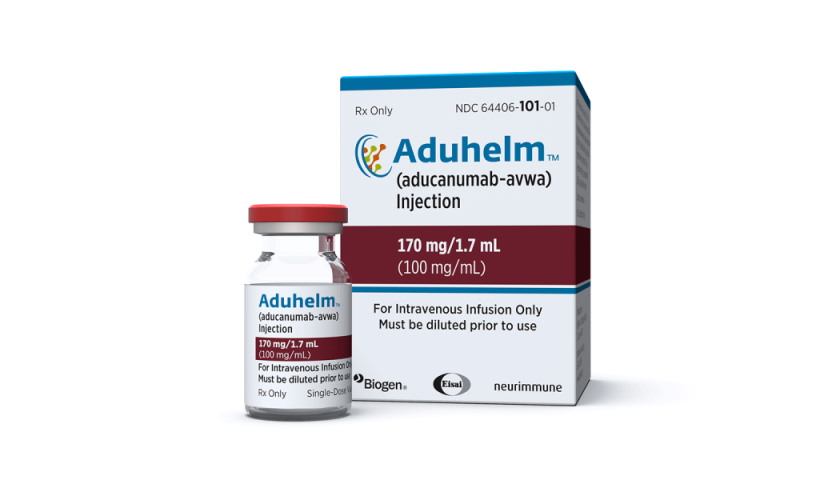FDA "collaborated" with Biogen on Aduhelm approval, says inquiry

The FDA's interactions with Biogen in the build-up to last year's controversial approval of Alzheimer's disease therapy Aduhelm have been described as "inappropriate" and "atypical" in a congressional report on the review.
The document produced by Oversight and Reform Committee chair Carolyn Maloney (D-NY) and Energy and Commerce Committee chair Frank Pallone Jr (D-NJ) also points to "collaboration" between Biogen and the FDA ahead of an advisory committee meeting that nevertheless resulted in no panellists voting in favour of approval for Aduhelm (aducanumab).
After the regulator ignored its advisors and granted accelerated approval to Aduhelm – the first amyloid-targeting therapy to reach the market – a number of committee members resigned in protest, prompting the lawmakers' investigation.
"While we all support the search for new cures and treatments to address devastating diseases like Alzheimer's, we must ensure that expediency does not take precedence over protocols that ensure the independence and scientific rigour of [the] FDA," commented Rep Pallone.
The top-line findings from the probe are of high-level engagement between Biogen and the FDA in the months preceding the approval, including at least 115 meetings and "substantive" email exchanges, that exceeded the interaction normally seen between sponsor and regulator.
Moreover, additional informal meetings, telephone calls, and emails were undocumented – contravening the FDA's internal recording policies. The report also finds that the joint briefing document presented to the advisory committee did not adequately represent differing views within the FDA on Aduhelm.
Also called into question is the FDA's decision to use the accelerated approval pathway for Aduhelm on a "substantially abbreviated timeline". The report notes that the FDA reviewed the drug under its conventional pathway for nine months, then abruptly pivoted to the accelerated pathway and delivered a verdict based on the surrogate endpoint of amyloid clearance from the brain after three weeks' review.
The decision to grant a broad label to Aduhelm despite a lack of clinical data across different stages of Alzheimer's – reportedly despite Biogen reservations – has also been criticised, along with an unjustifiably high price for the drug of $56,000 per year that was an example of "corporate greed," according to Rep Maloney.
Biogen's hopes were for sales of around $18 billion per year from Aduhelm, says the document, without consideration of the impact that could have on the US healthcare system.
The company slashed the price of the drug in half shortly after approval, but sales remained vanishingly small and were all-but entirely curtailed when the Centres for Medicare and Medicaid Services (CMS) limited reimbursement to patients enrolled in approved clinical trials.
"The number of patients and families impacted by Alzheimer's disease will continue to increase, and it is crucial that [the] FDA and drug companies adhere to established procedures and conduct themselves with the transparency necessary to earn public trust," Rep Maloney said.
"I am hopeful these findings are a wake-up call for [the] FDA to reform its practices and a call to action to my congressional colleagues to continue oversight of the pharmaceutical industry to ensure they don't put profits over patients, " she said.
In a statement, Biogen said it "stands by the integrity of the actions we have taken" and highlights the findings of an FDA internal review – cited in the congressional report – which concluded "there is no evidence that these interactions with the sponsor in advance of filing were anything but appropriate in this situation."
Among the recommendations for the FDA are that it ensures that all substantive interactions between agency staff and sponsors are recorded, the establishment of a protocol for joint briefing documents for advisory committees, and an update to its own guidance on development and review of new Alzheimer's drugs.
The report emerges as the FDA is in the final stages of reviewing Eisai and Biogen's marketing application for Aduhelm follow-up lecanemab.













